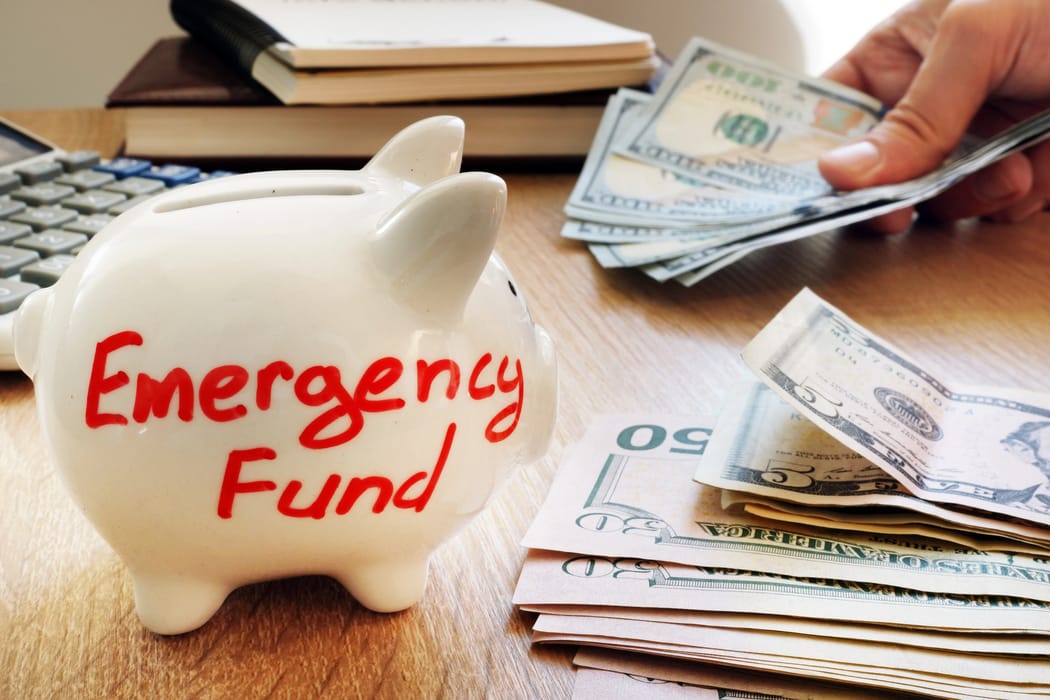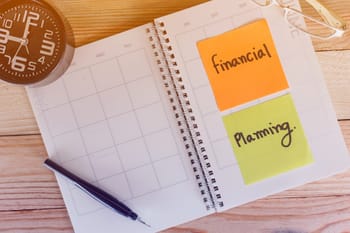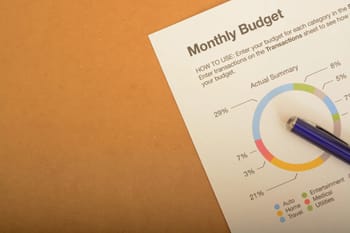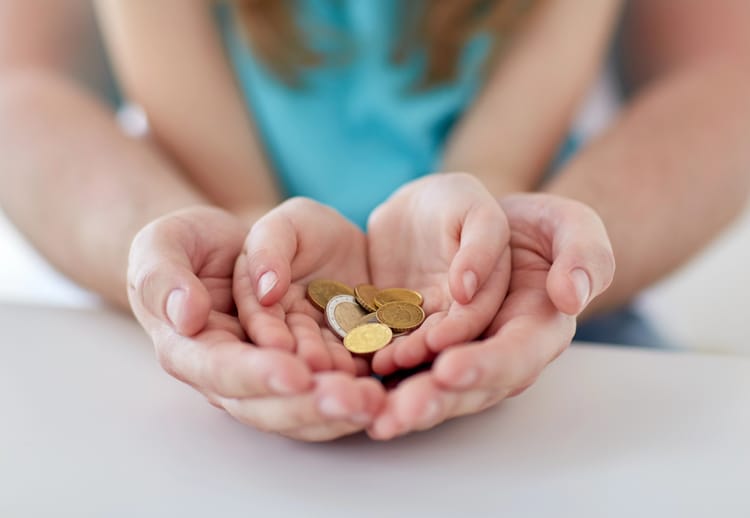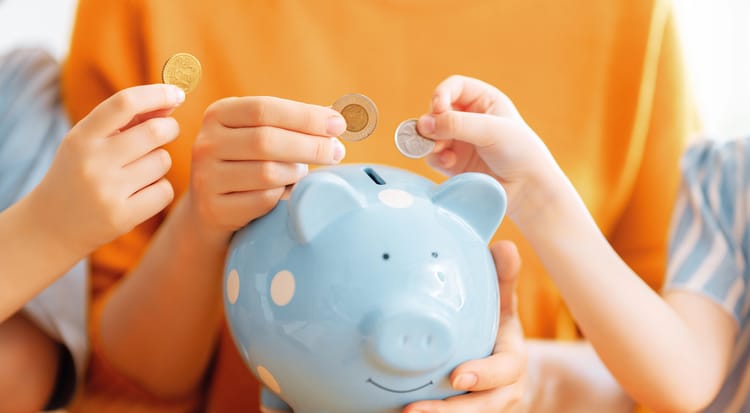The ongoing cost of living crisis and looming recession make it more important than ever to set aside money to deal with any unplanned expenses you might face. Financial emergencies, whether a boiler repair or a sudden accident, are not always avoidable, but they always have to be dealt with somehow.
To emerge victorious from costly and sudden adversities, you need a special emergency fund. These funds need to be built and kept separate from your traditional savings, and used only in certain situations to keep your financial health good.
This article will answer why you should consider saving for emergencies, how much cash you need to save, and what strategies you need to follow to collect the needed money effectively. Read on for an emergency fund definition and a practical guide to saving for the unexpected.
What Is an Emergency Fund?
An emergency fund is a stash of money set aside to cover an unforeseen bill or a change in your income level. You can use the funds to cover:
- Home repairs,
- Replacement of home appliances,
- Car repair,
- Loss of employment income,
- Extended illness, or
- Other urgent costs that are not part of your monthly budget.
You should keep your emergency cash separate from any funds you might save for other long-term goals.
Why an Emergency Fund Is So Important
Why is it important to have an emergency fund? A fund set aside to cover financial emergencies is essential to good financial planning.
Over half of the European consumers surveyed [1] by research firm IRI say they are worried about the impact of the rising cost of living on their personal finances and have cut down on essentials. Around 35% have already dipped into their savings or taken out loans to pay bills. Any money they had saved up during the Covid-19 pandemic has been used to meet living expenses.
With interest rates rising, having access to emergency cash means you can avoid using costly credit cards or loans. Taking on debt means any payments you have to make will become more expensive, as you will have to pay interest on the loan or credit card repayment. You could also find it difficult to borrow money from a lender, especially if you lose your job or are unable to work.
How Big Should My Emergency Fund Be?
Are you wondering ‘how much emergency fund should I have’? The amount you need to save will depend on your personal financial situation, your income and expenses. How much emergency fund you set aside should be based on how much money you need to live on for three to six months.
How much emergency savings should I have if I am self-employed?
You should consider saving more if you work freelance, have your own business or have seasonal employment, or if it would be difficult for you to replace your income.
Focus on saving enough money to cover necessities such as housing, food, utilities and credit card or loan repayments, rather than replacing your entire income.
Your emergency fund should be based on your regular monthly budget
Where Should You Put the Money?
You should save your emergency cash in an easy-access bank account that pays interest. In that way you can earn compound interest on the money and still withdraw it without penalties or taxes at any time.
Look for a savings account that offers a competitive interest rate and low fees.Keep in mind that you do not need to use an account just because you have had it for a while. By shopping around, you could find a new account with better terms.
Avoid investing the money in riskier assets, as market volatility means they can lose value at the time you need cash the most.
Note that you should hold your emergency money in a separate account to the one you use for day-to-day expenses, to avoid the temptation to dip into it for non-emergencies.
How Can You Build an Emergency Fund?
Are you unsure how to start an emergency fund? You do not need to feel overwhelmed by having to save a large sum of money. Start with small goals and use the following strategies to work your way up to saving the full amount over time.
Strategy: Create a savings habit
Once you have determined how much you should save based on your income and expenses, calculate how much you can set aside from your monthly budget.
Identify non-essential spending in your budget that you can cut back on and make it a habit to set aside some of your weekly or monthly income for your emergency fund.
Creating a strategy to save towards the fund regularly will make it seem less daunting than having to come up with the full amount all at once.
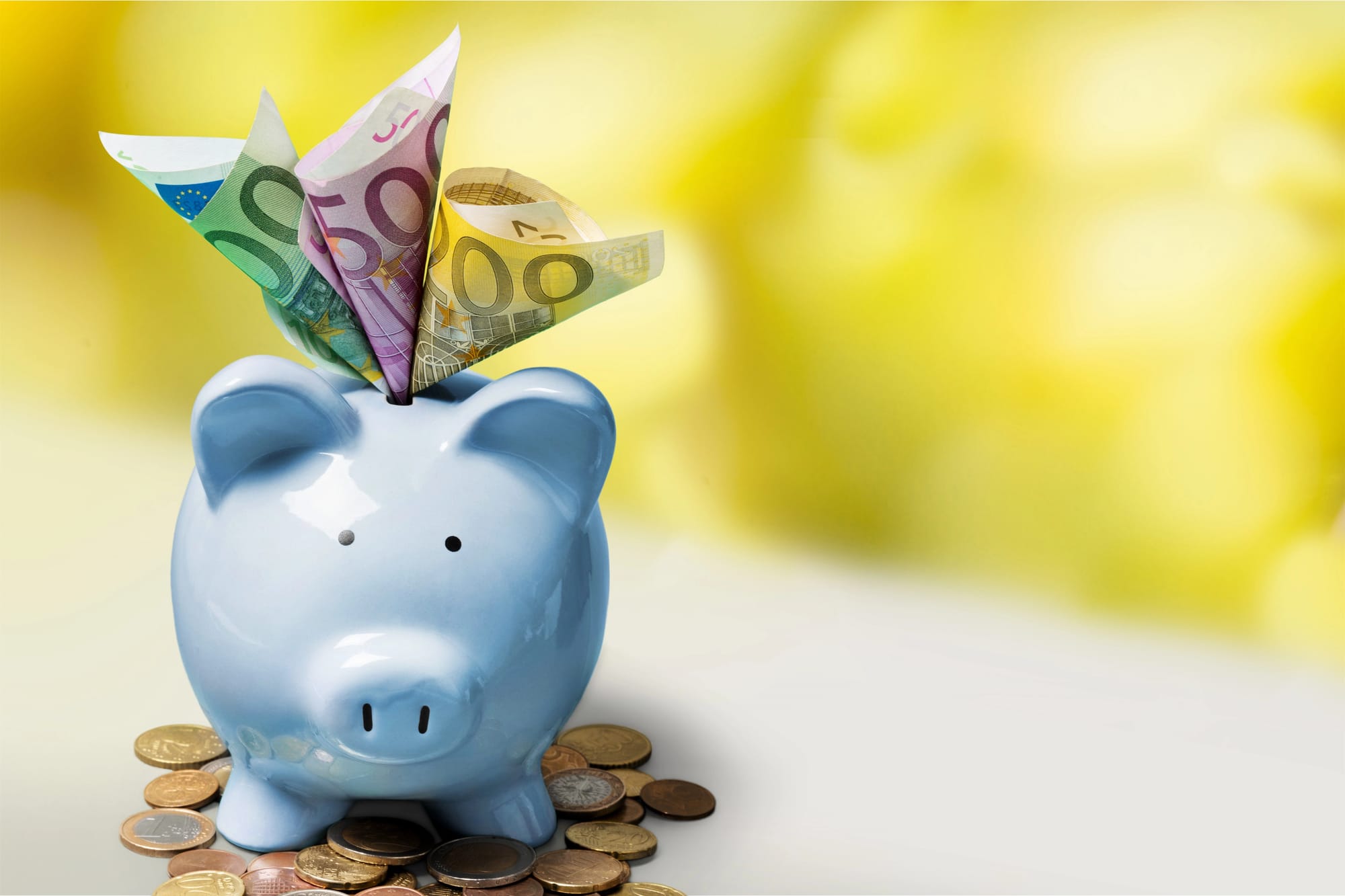
Calculate how much to save from monthly budget; create a regular savings habit
Strategy: Manage your cash flow
Managing the timing of your spending is key, because if you have money leaving your account before you receive your weekly or monthly income you could end up short on cash. For example, you may be able to negotiate the dates that your bills are due to better manage your cash flow, freeing up funds to move into your emergency fund.
Tracking your outgoings against your income can help you identify opportunities to adjust your spending and increase your savings.
Aim to set aside a specific amount each pay period and if you can afford to add more occasionally, your emergency fund will grow faster.
Strategy: Take advantage of one-time opportunities to save
If you are given any money outside of your regular earnings, consider depositing it in your emergency savings account rather than spending it. Whether you receive a bonus from work, a tax refund, or a cash gift, you can add it to the amount you are already setting aside to increase your emergency fund.
Strategy: Make your saving automatic
The easiest way to build up your emergency fund is to set up a recurring transfer from your current account to your fund account so that you contribute to it consistently without any effort.
Once you have decided how much you want to pay into the fund on a regular basis, you can set up an automatic transfer. You should make sure that you time the transfer around your spending so that there is enough money in your account to make the payment and avoid overdraft fees. You can use calendar reminders or automatic account notifications to stay on top of your account balance.
Planning for unexpected expenses will help protect your financial health
When Should You Use This Money?
Once you have an emergency savings fund, you can use it to pay an unforeseen expense that you would not have enough money to cover from your usual budget. You should set some rules on what you would consider a serious enough cost that would justify tapping into your emergency fund.
Emergency fund examples include replacing a home appliance, a failed car MOT, boiler repair or a large energy bill.
When you do withdraw from the account, try to replace the money as soon as possible. This will become easier over time as you improve your savings rate.
Save an Emergency Fund to Protect Your Finances
We all face unexpected expenses from time to time that can derail us financially if we are not prepared. Establishing an emergency fund is one way to protect your financial health. If you get into the habit of saving on a regular basis, you can soon reach your goal of having an emergency fund to pay unplanned costs. And you can create a savings habit that you can apply to your other financial goals.
Set rules for what constitutes an emergency and when you do have cause to use the fund, make sure to replenish it as soon as possible.
Frequently Asked Questions
How much should I save in an emergency fund in Europe?
Most financial experts recommend saving at least three to six months’ worth of essential living expenses. If you are self-employed or have irregular income, consider saving even more to cover potential gaps. Focus on housing, food, utilities, and debt payments when calculating your emergency fund size.
Why should I have an emergency fund?
Having a fund to cover financial emergencies can help you protect your financial health. You can pay for unexpected bills without having to borrow money and pay it back with interest.
Where is the best place to keep an emergency fund?
The safest option is an easy-access savings account with a competitive interest rate and low fees. This way, your money grows with compound interest but remains available at any time without penalties. Avoid risky investments, as you might lose value when you need the cash most.
How fast should I build my emergency fund?
You do not need to set aside a large sum of money all at once. Once you have budgeted an amount you can afford to save, set up an automatic bank transfer to your emergency fund account on a regular basis until you reach your goal.
Where is the best place to keep an emergency fund?
Look for a savings account with a high interest rate to boost your emergency fund and low fees to limit the charges deducted from the balance.
List of References:
- Source: iriworldwide.com

